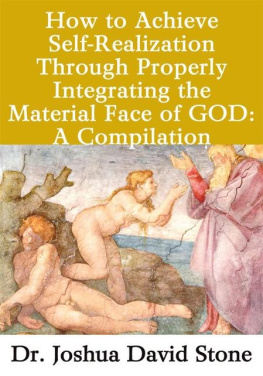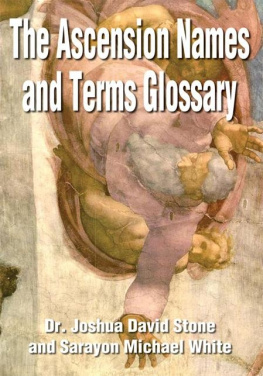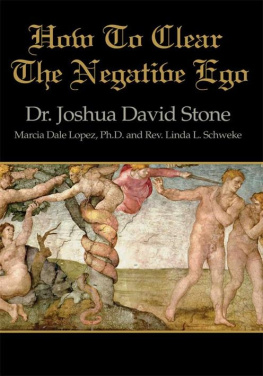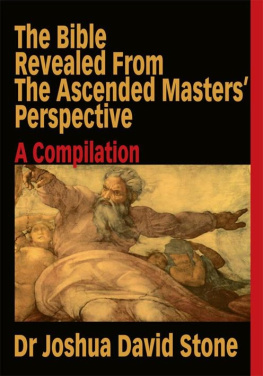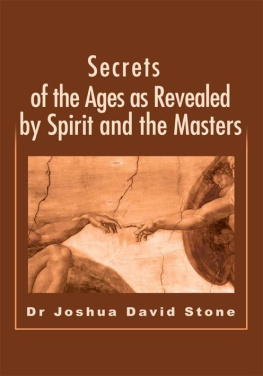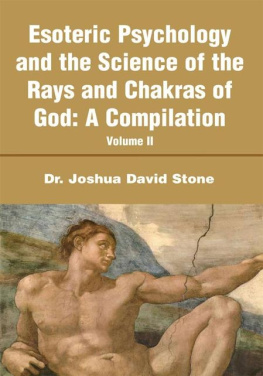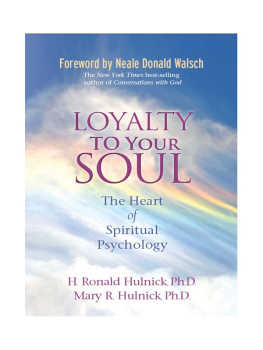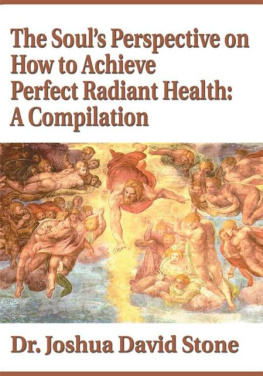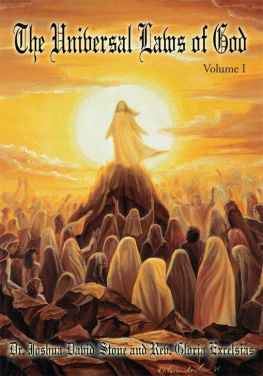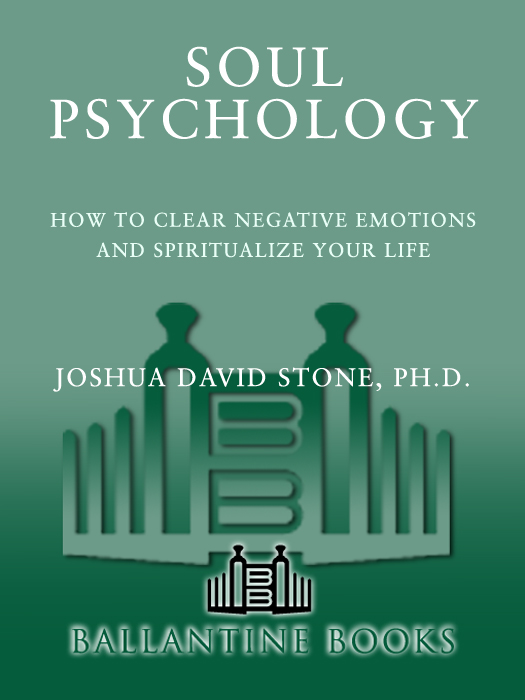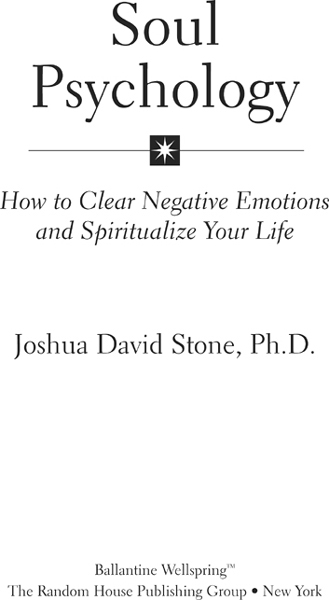Notice

Much of the information in this book has been channeled through communication with the Ascended Masters. As with all types of information, it is subject to the lens of the individual who is receiving the information. Any application of the material set forth in the following pages is at the readers discretion and is the readers sole responsibility.
The spiritual healing techniques presented in this book are a source of important information, but if you suspect any medical problems, you must seek out a qualified health care professional and/or medical doctor.
Part I

The Four Golden Keys
Chapter 1

What Is Soul Psychology?
God equals man minus ego.
SAI BABA
W e are living in an extraordinary time in the history of the earths evolution. Extraordinary advances have been made within this last millennium. In the last hundred years alone, we have witnessed startling breakthroughs in technology, medicine, and communications. We have landed on other planets, put a space station in orbit, grown test-tube babies, and cloned sheep. In the midst of these incredible achievements, mankind has never been more at odds with itself and so lacking in inner peace. Why is this?
To say that there is one answer would merely oversimplify complex issues. While there are many aspects to consider, there are two main patterns woven through this tapestry of answers. The first is humanitys obsession with material expansion and accelerated change at the expense of focusing on psychospiritual development. The second thread is failing to take into account the degree to which an individuals relationship to the psychological self affects his or her spiritual life. Simply put, if we are not right with ourselves, then every relationship in our lives, including our relation to God, will be compromised.
I have spent my life studying psychology or sharing my days with those who work in the field, including my parents, my stepmother, and my sister, who are all professionals in this area. This early and frequent exposure hasnt given me all the answers to lifes problems; however, I do feel that my personal and professional background, including my many years of experience in working as a licensed marriage, family, and child counselor, and as a licensed minister and spiritual teacher, has given me some valuable insights. Most particularly, it has helped me to understand, and to experience firsthand, the limited means traditional forms of psychology have used to deal with these two crucial issues.
I have a great deal of respect for traditional psychology and for those well-intentioned individuals who practice it. And I feel fortunate that I underwent traditional psychological training. It provided me with the solid foundation on which Ive based my explorations of alternative methods and models, which eventually led me to establish my practice based on the principles of soul psychology. As you can probably gather from the very words themselves, soul psychology takes us out of the realm of traditional psychology by dealing with elements of human existence that traditional psychology often ignores completely or makes only passing mention of.
While traditional forms of psychology are primarily concerned with helping individuals deal with crises and helping them make adjustments to their personality, soul psychology expands upon the work with the individuals personality to integrate the metaphysical aspects of human existence. Regardless of our spiritual or religious orientation, most of us would agree that soul is a convenient term to use for that part of human experience that is beyond body, mind, and emotion.
The purpose of this book is to build a bridge that spans the wonderful work being done in the field of personality-level psychology (traditional psychology) and the new tradition of soul-based psychology. What amazed me as I sat through lecture after lecture and read textbook after textbook in my traditional training was that few if any of the psychological theories I encountered even mentioned one of the most important aspects of human lifeour relationship to God in whatever form we perceive him/her/it. I was doing my spiritual work at the time, and I simply couldnt understand why none of the most highly regarded psychological theorists dealt directly with our spiritual side. Perhaps their need to guard psychologys tenuous position as a rational science prevented them from doing so. The prevailing belief that being correct scientifically was more important than helping people become fully human troubled me as a student and well after.
When I went through my B.A., M.A., and Ph.D. programs, professors taught psychology by throwing many different psychological theories at us, without guiding us to an understanding of which ones were valid and which ones were not. That was because no one teaching the classes could tell us this with any certainty. Every professor had a favorite theory. Our job as students was to try to develop some understanding of all of them and, on our own, select the one we preferred. This became the foundation for how we practiced and how we lived. My problem was that I couldnt really accept any single theory by itself. They all contained what I would call slivers of truth. Maybe if you put them all together you would have a half-truth. But each theorist asserted that he or she had discovered the whole truth.
Thats not to say that these slivers of truth cant help some of the people some of the time. Nevertheless, if you were to construct a horizontal graph with numbers at the endpoints of 0 and 100 (with 0 representing the lowest level of consciousness and 100 being the highest levelthe realm of the Ascended Masters), then traditional psychology might be able to help some people attain level 30. It could never take you any higher. Even if you visited a traditional psychologist five times a week for the next fifty years, you wouldnt be able to get past 30. Why? Because traditional psychology is 98 percent devoid of spirituality.
In my first book, The Ascension Handbook, I spoke of the three levels of self-actualizationthe personality level, the soul level, and the monadic level. At traditional psychologys absolute best (and even this is debatable), it can help you to achieve personality level self-actualization. That is the 30 percent level of consciousness I credit it with. Some people would say that 30 percent consciousness is acceptable. Many others aspire to something higher. If you are reading this book, you probably belong to that second group, and you intuitively understand that traditional psychology cannot help you to gain the soul self that you are working toward.


